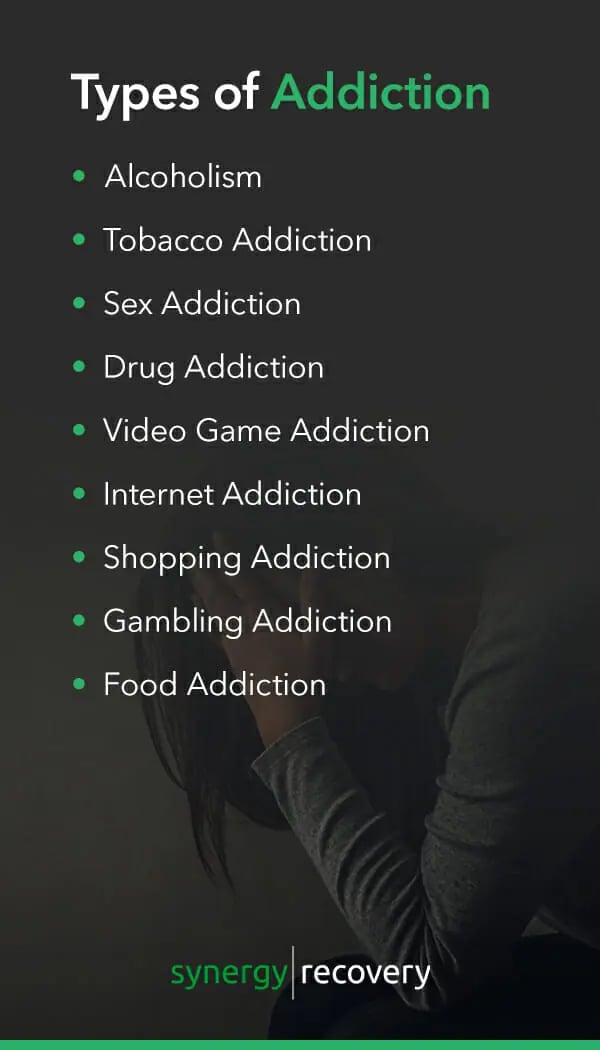"Understanding Addiction"
Addiction is a complex and chronic condition characterized by the compulsive engagement in behaviors or the use of substances, despite negative consequences. It's often marked by an inability to control the behavior or substance use, leading to dependence, withdrawal symptoms, and a preoccupation with obtaining and consuming the substance or engaging in the behavior.
Addiction can manifest in various forms, including substance addiction (such as alcohol, drugs, and tobacco) and behavioral addiction (such as gambling, gaming, internet usage, shopping, and eating). While the specific triggers and mechanisms may vary, addiction typically involves changes in brain chemistry and neural pathways, leading to intense cravings, tolerance, and withdrawal symptoms when the addictive behavior or substance is not present.
It's important to recognize that addiction is not simply a matter of weak willpower or moral failing but rather a complex interplay of genetic, environmental, and psychological factors. Seeking professional help, building a strong support system, engaging in therapy or treatment programs, and developing healthy coping skills are essential steps in overcoming addiction and achieving long-term recovery.
"Its Types"
Addiction can be classified into two main types: substance addiction and behavioral addiction.
Substance Addiction: This type of addiction involves the misuse or dependence on substances such as alcohol, drugs (both illicit and prescription), and tobacco. Substance addiction often leads to physical dependence, tolerance, and withdrawal symptoms when the substance is not consumed. Examples include alcoholism, opioid addiction, and nicotine addiction.
Behavioral Addiction: Behavioral addictions revolve around compulsive engagement in certain behaviors, despite negative consequences. These behaviors trigger the brain's reward system in a similar manner to substance use, leading to addictive patterns of behavior. Examples of behavioral addictions include gambling addiction, gaming addiction, internet addiction, shopping addiction, and eating disorders such as binge eating or compulsive overeating.
"Strategies for Recovery"
Recovery from addiction is a journey that requires dedication, support, and a comprehensive approach. Here are some effective strategies for recovering from addiction:
Seek Professional Help: Consulting with addiction specialists, therapists, or counselors can provide individuals with personalized treatment plans and support tailored to their specific needs. Professional guidance can help address underlying issues contributing to addiction and develop strategies for recovery.
Participate in Therapy and Treatment Programs: Engaging in therapy sessions, rehabilitation programs, or support groups can offer invaluable tools, resources, and peer support for individuals seeking recovery. Therapy sessions may include cognitive-behavioral therapy (CBT), motivational interviewing, and other evidence-based approaches to address addiction-related issues.
Build a Support System: Surrounding oneself with a supportive network of friends, family, or peers who understand the challenges of addiction can provide encouragement, accountability, and solidarity on the journey to recovery. Support groups such as Alcoholics Anonymous (AA) or Narcotics Anonymous (NA) offer a sense of community and shared experience that can bolster one's resolve to overcome addiction.
Develop Coping Skills: Learning healthy coping mechanisms and stress-management techniques is essential for managing cravings, navigating triggers, and preventing relapse. These may include mindfulness practices, relaxation techniques, exercise, hobbies, and finding alternative outlets for emotional expression.
Address Underlying Issues: Exploring and addressing underlying factors contributing to addiction, such as trauma, mental health disorders, or unresolved emotional issues, is crucial for achieving lasting recovery. Therapy and counseling can help individuals identify and process these underlying issues, paving the way for healing and growth.
Set Realistic Goals: Setting achievable goals and milestones for recovery can provide a sense of direction and motivation. Breaking down the recovery process into manageable steps can make the journey less overwhelming and more attainable.
Practice Self-Care: Prioritizing self-care and overall well-being is vital during the recovery process. This includes maintaining a healthy lifestyle, getting adequate sleep, eating nutritious foods, staying hydrated, and engaging in activities that promote physical, emotional, and mental well-being.
Stay Connected: Stay connected with your support system, whether it's through regular meetings, phone calls, or online support groups. Sharing experiences, seeking advice, and offering support to others can strengthen your commitment to recovery and remind you that you're not alone on this journey.
Celebrate Milestones: Celebrate your achievements and milestones along the way, no matter how small. Recognize the progress you've made and acknowledge the hard work and determination it took to get there. Celebrating milestones can boost your morale, reinforce positive behavior changes, and inspire you to keep moving forward.
Practice Patience and Persistence: Recovery is not always a linear process, and setbacks may occur along the way. It's essential to practice patience, self-compassion, and persistence, even in the face of challenges. Remember that recovery is a journey, and every step forward, no matter how small, is a step towards a healthier, happier life.



